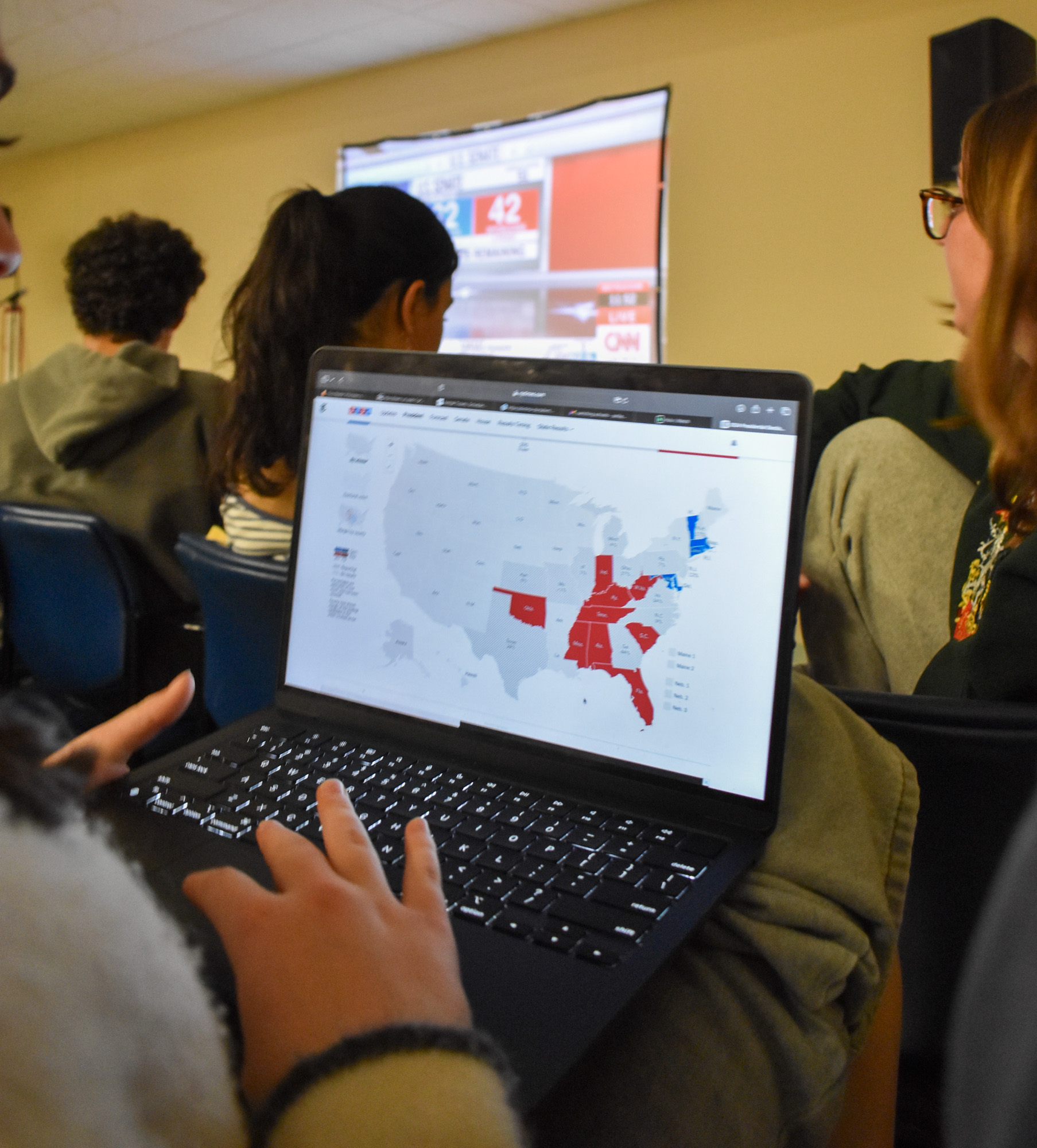On Wednesday morning, junior Kate Kehoe woke up to a text message confirming Donald Trump won the election.
“I felt this sinking pit in my stomach,” Kehoe said. “I was so optimistic, so hopeful that we’d finally see a woman in office. I thought she would do really great things for our country, but now I just feel so defeated and so tired after seeing it happen in 2016.”

Similarly, many Boston University students and faculty described their reactions to the Republican candidate beating Vice President Kamala Harris as “shocked” and “confused.”
Despite Harris winning Massachusetts with 60.9% of the vote, Trump won both the electoral college and the popular vote.
According to the New York Times, Trump won the election with 295 electoral college votes, beating Harris in all major battleground states.
“This is an unmitigated disaster for anyone who holds liberal or democratic norms dear to themselves,” said Erik Peinert, an assistant professor of political science. “It’s likewise likely to be an unmitigated disaster in terms of the United States’s position in the world.”
Before election night, Kehoe said she thought Harris’s path to becoming the first female president of the United States looked promising.
“I’m just so sad people would elect somebody like him over somebody that’s qualified,” Kehoe said. “Just because she is a woman.”
Following the results, students across campus said they are fearful for the future.
“I’m definitely worried about LGBTQ rights and abortion rights,” said senior Sophia Gaunt. “We saw what happens [when Trump’s] in charge, and it’s only gonna get worse.”
Junior Shayna Parikh said she knows many women who needed abortion procedures for health reasons. She said she worries with Trump as president, he could jeopardize access to such care.
“To think that we don’t have control over our bodies anymore, that stresses me out,” Parikh said.
Amanda Lohnes, president of BU College Republicans, said while she is pro-choice, Trump’s views on immigration and foreign policy — specifically regarding relations with Russia, Ukraine and China — solidified her vote for him.
“In another election I may have voted for Kamala because of the social issues and what she stands for,” Lohnes said. “But in this particular election, I think national security is the most important.”
Freshman Katherine Billian said she is “nervous” about the possible implementation of Project 2025, a conservative policy playbook, and its potential ramifications on the environment.
“I think [Trump’s] not going to try to reduce pollution and the effects of climate change as much as I want to,” Billian said.
Meanwhile, sophomore Austin Herrera said under a Trump administration, he is most concerned about the women in his family and his rights as a Black man.
Trump is the first convicted felon to be elected president according to the New York Times. For Herrera, the presidential choice between a convicted felon and Harris was an “easy” one.
“I feel like Kamala fought really hard for the American people,” Herrera said. “So I’m just disappointed, confused, upset.”
This election also marks the first time a Republican presidential candidate won the popular vote since 2004, according to Axios. The decisiveness of Trump’s victory shocked members of the political science department.
“[There was] every indication that this was going to be a close election,” Peirnet said. “I think I probably would say I was surprised by the fact that it wasn’t particularly close and that Trump actually won the popular vote.”
David Hackett, a political science PhD student, said he was “saddened” by the result, but not as surprised as he was after the 2016 presidential election.
“I feel less shocked in terms of understanding Trump’s appeal and his platform,” Hackett said. “I feel like I understand him and his policies better, but I also feel more fearful in terms of what policy changes will come down the turnpike with his election.”
With the long-term effects of this election on the larger BU community not yet seen, some students emphasized the importance of caring for oneself.
“Take the time to process and then try your best to be the change you wish to see in the world in any capacity that you can,” Hackett said. “No matter what identity you occupy and what you do, you can institute change in your own specific way no matter who you are.”


















































































































